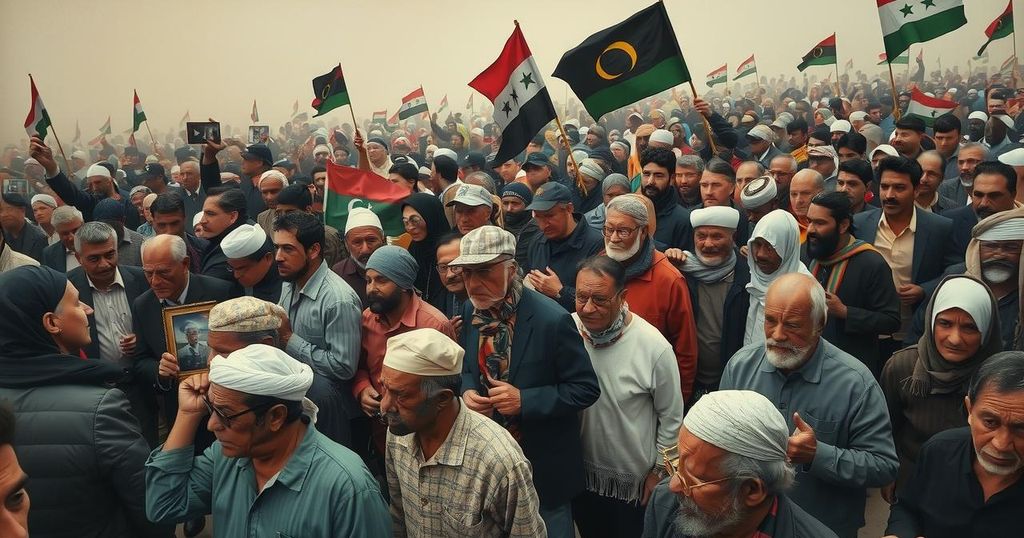Activist Abdelmonem Al-Marimi’s Death Raises Questions in Libya

- Abdelmonem Al-Marimi died in custody amidst controversy.
- Surveillance footage raises troubling questions about his death.
- The Internal Security Agency denies accusations of foul play.
- Al-Marimi was a prominent voice against government corruption.
- Thousands protested at his funeral against systemic issues.
Activist Death Sparks Outrage and Skepticism
The tragic passing of Abdelmonem Al-Marimi, a 42-year-old Libyan activist, has left the nation searching for answers amidst a cloud of controversy. Late in the evening of July 5, while in the custody of the Attorney General’s office in Tripoli, Al-Marimi died unexpectedly. Surveillance footage released just a day later depicts him entering various offices before suffering a harrowing fall from a third-floor stairwell. The footage leaves viewers not only shocked but also skeptical about the circumstances surrounding his death, raising critical questions with no easy answers.
Contradicting Accounts from Authorities
The Internal Security Agency (ISA) issued a statement adamantly denying any wrongdoing, insisting that Al-Marimi was arrested due to serious behavioral concerns and complied with all legal protocols during his detention. They further claimed he was released in good health, only to suggest that his confinement was extended for additional questioning. In stark contrast, the Attorney General’s office posited that Al-Marimi was fully aware of his imminent release, generating contradictory narratives that have left the public bewildered. As the nation grapples with these conflicting accounts, the reality remains that a man is dead, and the community is not remaining silent about it.
Activism and Artistic Legacy
Al-Marimi was not just any activist; he was a household name in Libya, known for his outspoken stance against corruption. Long before his tragic end, he made his mark in the world of politics and art, famously creating the animated series Haj Hamad, which oscillated between humor and sharp political commentary. Just weeks before his death, he emerged as a central figure of protests against Prime Minister Abdulhamid Dbeibeh and his government, which many view as riddled with corruption. The protests that erupted in mid-May were a direct response to the spreading violence in Tripoli, and Al-Marimi’s leadership galvanized many people seeking change in a nation rife with chaos.
Funeral Turns into Protest Against Corruption
The outpouring of support during his funeral in Zawiya, where thousands came despite a scorching heat wave, underscored his influence. The mourning turned into protest against government corruption, demonstrating that Al-Marimi’s legacy may well serve as a rallying point, rather than a mere whisper in the wind. Attendees openly called for accountability from the authorities, questioning why a man purportedly cleared for release would take such a desperate leap. Speculations surrounding his last hours have fostered a general mistrust in official narratives, making it clear that many Libyans are not convinced of the claims made by those in power about Al-Marimi’s death.
Al-Marimi’s death raises profound questions about transparency and accountability within Libya’s political system. The stark contrasts in official statements have only fueled suspicions among the public, while thousands continue rallying for justice. Al-Marimi’s legacy, both as an activist and a creator, highlights the pressing need for a more truthful discourse in a nation that has long suffered from political turmoil and corruption. His untimely death serves as both a tragic loss and a formidable challenge to imagine a future of open and honest dialogue.







